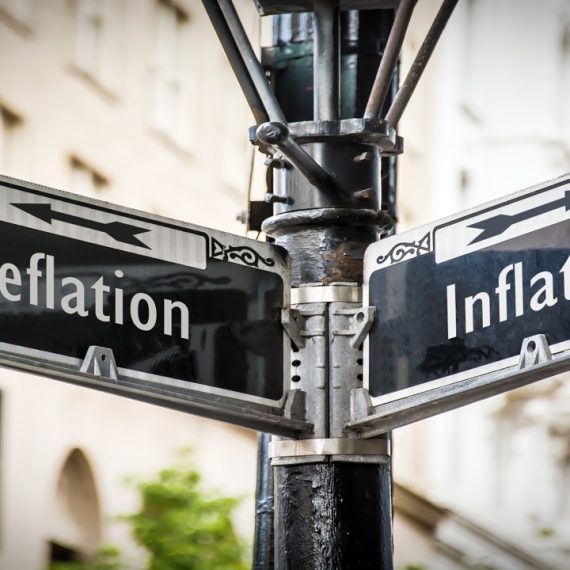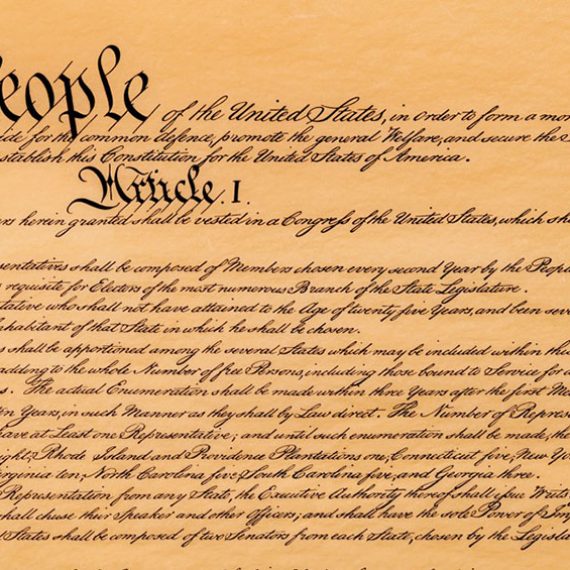July 7, 1997 – A war of words was started at the recent G-7 meeting in Denver. The first salvo was fired by President Clinton in a discussion with reporters prior to the conference, and it landed in the lap of the Japanese Prime Minister. He told Mr. Hashimoto that Japan should reduce its trade balance with the United States as well as deregulate its domestic markets.
Mr. Hashimoto’s response was polite but terse, and probably similar to what anybody would say when being told what to do by somebody else. He said that Japan is not accustomed to being supervised by others, and that its business and political leaders knew what was best for its own domestic economic situation.
Undaunted by this response, and standing tall in his cowboy boots and Levi’s, President Clinton continued to harp on the G-7 partners by telling them what they should be doing with their domestic economy. It wasn’t just the Japanese who were the target of this bombast. According to the Financial Times, the “US irritated Chancellor Helmut Kohl [at the Denver meeting] by lecturing Bonn about the need to reform its economy.”
Imagine being stuck in meetings for an entire weekend with Clinton and having to listen to his arrogant babble. It was probably more than anyone could bear, so it was not too surprising what Mr. Hashimoto said at a luncheon in New York just after the G-7 meeting. In response to a question about his country’s large portfolio of US government debt instruments, Mr. Hashimoto responded with a lengthy analysis of the reality of the present day international monetary system, concluding that:
“In the past, we were tempted to sell US Treasuries and buy gold when I was involved in car negotiations (as trade minister in 1995) and when the US was not interested in the [exchange rate of] the dollar…when it was fluctuating wildly. So please co-operate with us to stabilize exchange rates to prevent us from being tempted to sell US Treasuries and buy gold.”
Mr. Hashimoto’s comments sent shock waves through the world’s financial community. Everybody was quick to deny what he actually said, and offered various excuses ranging from jet-lag to errors in translation in order to try explaining away Mr. Hashimoto’s remarks. But try as they might to explain away his response, Mr. Hashimoto squarely hit the nail on the head.
The international monetary system is stacked in favor of the United States. In fact, it has been that way since the Bretton Woods conference in 1944 placed the US Dollar at the center of the international monetary system. And though the international monetary system as it is structured and operates today is far different from the mechanism established by that conference, there is no denying that the US Dollar still takes center stage.
Though international transactions denominated in US Dollars have fallen from 95% immediately after World War II to about 55% today, the Dollar is still by far the most widely used international currency, and it is Japan’s most important foreign currency. About 90% of Japan’s $217 billion in foreign currency reserves is denominated in US Dollars.
This accumulation of Dollars has been beneficial to the United States. It has helped the federal government finance its perennial operating deficit, and Dollar interest rates today are no doubt lower than they would otherwise be if Japan weren’t regularly buying government paper with the Dollars it receives from its exports to the US. In its trade with Japan, the US in effect imports Toyotas and exports IOU’s, all of which would be well enough if the mechanics of trade were left alone.
However, not content to recognize the willingness of the Japanese to endlessly accumulate Dollars nor to give recognition where it is due, Mr. Clinton wants more. It is here where he can be accused of Dollar imperialism. In his view, the Dollar is not a neutral tool in the international economy. According to Mr. Clinton, if you use the US Dollar, you’ve got to play by his rules.
It’s no wonder that Mr. Hashimoto felt the need to remind the US that Japan could always sell Dollars and buy Gold. I don’t see it so much as threat, but rather a reminder from a friend that the United States was not almighty, and that Japan was not powerless.
It remains to be seen whether this war of words will escalate. Treasury Secretary Rubin joined the fray a few days later. He said the markets in the United States for US government paper were broad enough and deep enough to absorb the selling from “any one country”. I agree, but left unsaid wasat what price?
How high would T-Bond yields have to rise in order for the markets to absorb the supply made available by selling from Japan?
Since Mr. Rubin’s parting shot, all has been quiet. We are left to ponder Mr. Hashimoto’s remarks, which are worth reading again. Note that Japan has already considered selling Treasuries and buying Gold in 1995, but chose not to. Will Messrs. Clinton and Rubin be so lucky next time?

 My objective is to share with you my views on gold, which in recent decades has become one of the world’s most misunderstood asset classes. This low level of knowledge about gold creates a wonderful opportunity and competitive edge to everyone who truly understands gold and money.
My objective is to share with you my views on gold, which in recent decades has become one of the world’s most misunderstood asset classes. This low level of knowledge about gold creates a wonderful opportunity and competitive edge to everyone who truly understands gold and money.
